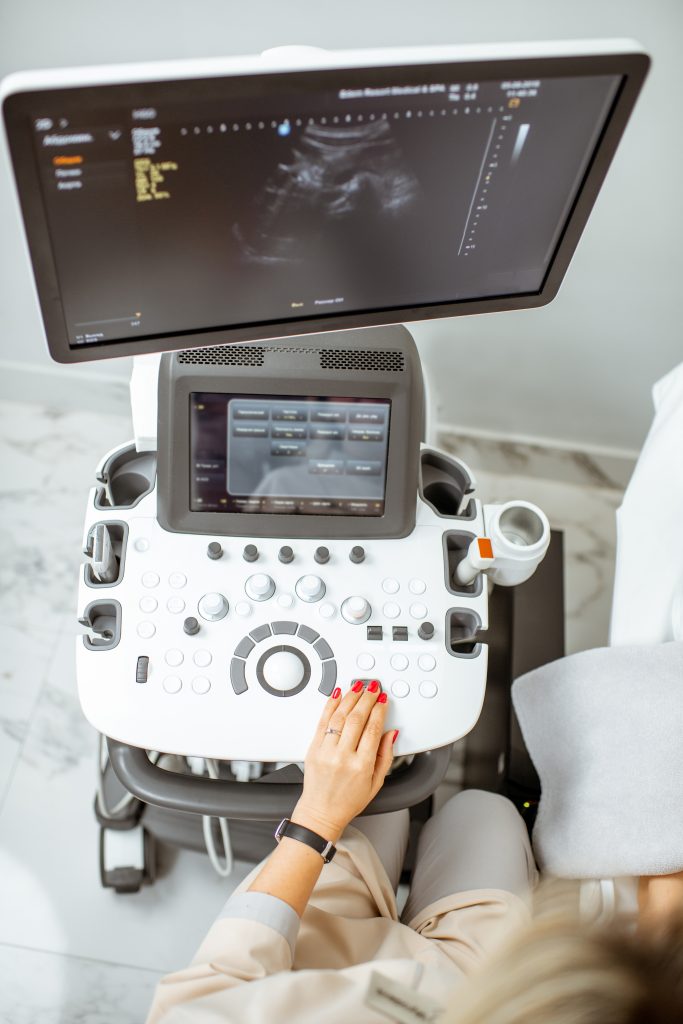Making the decision to learn more about your fertility can feel incredibly empowering and nerve-wracking at the same time. Whether you’re actively trying to conceive or simply planning for the future, fertility assessments can offer helpful insights into your reproductive health.
In this blog, we’ll break down what female fertility assessments involve, why you might want to take them, and where to go for them. While we’re focusing on assessments for women here, it’s worth noting that male fertility assessments are just as important.
What Are Fertility Assessments?
Fertility assessments are medical checks that help evaluate your reproductive health, normally carried out by a fertility specialist or an obstetrician-gynaecologist (OB/GYN).
Common reasons for fertility assessments:
- You’re trying to get pregnant and it’s taking longer than expected.
- If you’ve been trying to get pregnant for more than 12 months (or more than 6 months if you’re over 35), it’s a good time to talk to a doctor.
- You’re planning ahead: you’re thinking about freezing your eggs or just want to understand your options.
- You want to learn more about your fertility.
FAQ: Should I consider testing my fertility even if I’m not trying to get pregnant?
Yes, especially if you’re thinking about having children one day. It can be helpful to get a snapshot of your fertility and plan ahead.
If you’re considering egg freezing, fertility assessments can:
- Estimate your ovarian reserve (the number of eggs you have).
- Help you understand the right timing (whether now is the right time to freeze your eggs or if you might be okay to wait for a few years).
FAQ: What’s the best age to check fertility?
There's no one-size-fits-all answer, but many people choose to test in their early 30s. That said, if you're in your 20s and curious, especially if you're considering egg freezing, there’s no harm in checking sooner.
If you’re planning to talk to a fertility specialist about fertility assessments, it’s important to also ask them about how different fertility treatment options are reimbursed in your country, so you can understand what your options look like at this stage.
Types of Fertility Assessments for Women
Fertility assessments typically include blood tests and other tests like an ultrasound. Depending on your situation, your doctor may also recommend additional tests.
Hormone blood tests:
- AMH (anti-müllerian hormone) or FSH (follicle-stimulating hormone) with E2 (oestradiol): these tests are commonly used in fertility assessments, and can estimate your ovarian activity (but can’t tell you exactly how many eggs you have).
- E2 (oestradiol) and LH (luteinising hormone): these hormones help regulate your menstrual cycle, so these tests can signal whether things are functioning as expected.
- Progesterone: this test confirms whether you’ve ovulated (released an egg) during your cycle.
FAQ: Is AMH reliable?
AMH gives a useful estimate of the activity in your ovaries but doesn't tell you your exact egg count or the quality of your eggs, and it can’t predict when you’ll hit menopause. It’s one piece of the puzzle, not the full picture.
Other assessments:
- Ultrasound scan: a pelvic ultrasound allows your doctor to examine your ovaries, uterus, and sometimes your fallopian tubes. A key measurement taken during this scan is the antral follicle count (AFC) which involves counting the number of follicles in your ovaries that have the potential to release an egg. The AFC gives an estimate of your ovarian reserve (how many eggs you have). Ultrasound scans can also check for any structural issues, like fibroids or ovarian cysts.
- Fallopian tube patency assessments: these assess whether your fallopian tubes are open (patent) or blocked (blocked tubes can prevent the egg and sperm from meeting). These tests are often carried out using a contrast medium (a special fluid that shows up in the scan) with an X-ray or ultrasound. Common procedures include hysterosalpingo-foam sonography (HyFoSy) and hysterosalpingography (HSG).

How Do I Find Out More About My Fertility?
If you’re interested in fertility assessments, you’ve got a few options:
- Talk to your general practitioner (GP) or your obstetrician-gynaecologist (OB/GYN). They can answer your initial questions and refer you to a fertility specialist if needed.
- Go directly to a fertility clinic. You don’t always need a referral (but this may differ by country and by clinic). Clinics can offer a full panel of assessments and talk you through your results.
- At-home testing kits. These are available online, but results can be hard to interpret without medical advice. They often don’t give the full picture, so if you’re serious about understanding your fertility, it’s best to speak to a specialist.
What To Expect from Fertility Assessments
If you decide to take fertility assessments, it’s important to remember that while they can offer valuable insights into your reproductive health, they can’t provide certainty. A normal result doesn’t guarantee you’ll conceive easily, and a low ovarian reserve doesn’t mean pregnancy is impossible – this is why it’s best to ask your doctor for advice when you assess your fertility health.
It’s also important to acknowledge that fertility assessments can be emotional. They might bring up difficult feelings, or spark tough conversations with your partner or family. That’s completely normal. If you need support with having difficult conversations with your loved ones, our guides are here to help.
Final Thoughts
Fertility assessments won’t give you all the answers, but they can be a helpful first step on your fertility journey. Whether you’re just starting to explore your fertility or you’re currently trying to get pregnant, these assessments can help you to understand your choices and make informed decisions.
If assessing your fertility feels like a big step for now, you can get an idea of how your fertility is expected to change with age by checking our fertility age calculator.





